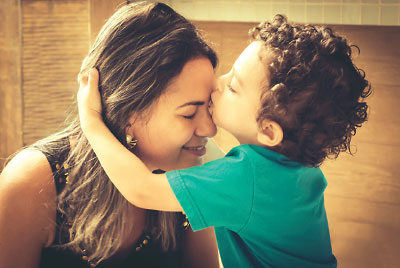Young children whose parents employed harsh punitive discipline styles tended to behave better in the short term, but it came at a high cost: more emotional problems and less prosocial behaviors at age 11, according to a population study published in the January Journal of the American Academy of Child and Adolescent Psychiatry.
This long-term study of nearly 5,000 mothers pulled data from the U.K. Millennium Cohort Study, a national longitudinal study monitoring the lives of children born in 2000 and 2001 in the United Kingdom. The mothers took a questionnaire on their parenting styles when their children were 3 years old, which quantified their use of “active punishment,” such as smacking, shouting, and telling off as well as their use of “withdrawal of reward” styles of discipline, such as removal of treats or attention, withdrawing privileges, or ignoring the children. The mothers also completed assessments of the emotional and behavioral difficulties in their children at ages 3 and 11 years. At age 11, children also completed a six-item questionnaire measuring their own mood.
Researchers found that the more frequently mothers used either discipline strategy—withdrawal of rewards or actively punitive approaches—the more emotional problems their children displayed at 11 years of age, wrote Priya Rajyaguru, M.R.C.Psych., of the Centre for Academic Mental Health at the University of Bristol in the United Kingdom, and colleagues.
While children subjected to the active punitive parenting approaches had fewer conduct and hyperactivity problems, this came at a high cost: more emotional problems and more problems relating to peers later in childhood. These problems were not seen among children subjected to the withdrawal of rewards discipline style, who also had fewer conduct problems but not less hyperactivity.
The muted nature of withdrawal approaches “is perhaps less likely to result in disruption of the parent-child bond, producing better child mental health outcomes,” the researchers wrote. The findings offer yet another example of why parents should avoid spanking or harsh verbal discipline that causes shame or humiliation, as was recently emphasized in an updated policy statement against corporal punishment by the American Academy of Pediatrics (AAP).
“Aversive disciplinary strategies, including all forms of corporal punishment and yelling at or shaming children, are minimally effective in the short term and not effective in the long term,” AAP wrote the December issue of Pediatrics. “With new evidence, researchers link corporal punishment to an increased risk of negative behavioral, cognitive, psychosocial, and emotional outcomes for children.
“The AAP recommends that adults caring for children use healthy forms of discipline, such as positive reinforcement of appropriate behaviors, setting limits, redirecting, and setting future expectations,” the policy statement concludes.
Both punitive and withdrawal-type approaches increased child-reported emotional symptoms, suggesting that they might both negatively influence children’s mood as they approach adolescence.
The U.K. researchers noted that older mothers used relatively less discipline overall, whereas mothers with more education and higher socioeconomic status used relatively more withdrawal of rewards and less actively punitive approaches, the study found.
The study results suggested it could be particularly problematic for children when mothers with psychosocial distress, such as depression, take active discipline approaches, the researchers wrote. In mothers with high distress, the researchers reported a stronger association between active punitive discipline and the child’s Total Difficulties Score on the Strengths and Difficulties Questionnaire. Researchers hypothesized that “the mothers’ emotional tone could further heighten the emotional reaction to active discipline.”
“This study demonstrates that for those mother-child dyads in which discipline is frequent, the type of approach used appears important with distinct later childhood mental health outcome,” the researchers wrote. “[I]f mothers adopted more withdrawal and less active approaches, then later emotional and behavioral problems might be decreased.”
Rajyaguru received funding from the National Institute of Health Research. ■
“Disciplinary Parenting Practice and Child Mental Health: Evidence From the UK Millennium Cohort Study” can be accessed
here.

